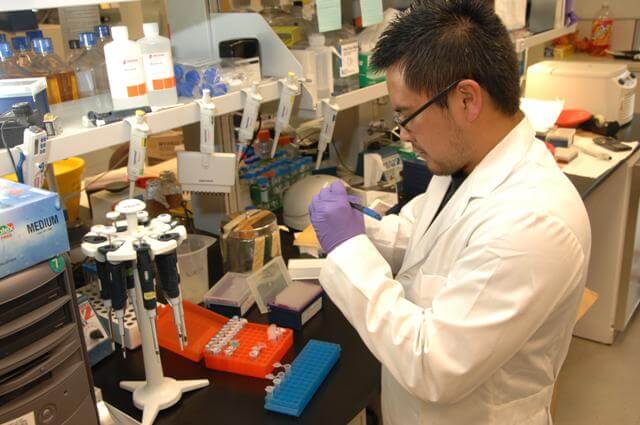As one of the world’s leading causes of death in the world, cancer is a terrible affliction. What’s worse, is that there is not one, but several different forms of the deadly disease, making finding a cure for each incredibly difficult. Pancreatic cancer, in particular, is the eighth most common cause of cancer-related death in the world. And although there is no sure, universal cure, there may be hope yet for those suffering from the disease.
The protein known as S100P is frequently found in pancreatic cancer patients, and essentially spreads cancer throughout the pancreas. Researchers at the University of Hertfordshire, with the help of Dr. Tatjana Crnogorac-Jurcevic of the Barts Cancer Institute, Queen Mary University of London, have potentially discovered a way to prevent the harmful protein from even being activated.
According to an article from Independent, the project, which was funded by the Worldwide Cancer Research charity, featured a bevy of scientists. In the article, two of the scientists involved in the project described the process of finding a potential cure. Apparently, Dr. Stewart Kirton of the University of Hertfordshire designed structures of new drugs based on an asthma prevention drug called Cromolyn, which were then synthesized by Dr Sharon Rossiter.
Later, the scientists used molecular biology in order to screen 93 different synthetic compounds for their ability to suppress S100P. The screening found 18 potential drugs, which were then tested for their toxicity on cancerous cells. Although the compounds did not kill the cancerous cells, they did manage to prevent migration, which is ideal for chemotherapy, as it slows down the cells, making them easier to attack.
Now, the scientists will spend the next few months looking over the most promising drugs and alter them, in an attempt to limit the amount of side-effects. The authors are hopeful that even though this breakthrough may not lead to a cure, it may make pancreatic cancer a manageable disease.
If these scientists can truly make pancreatic cancer manageable, it could affect the lives of millions the world over. More than 53,000 people are diagnosed with pancreatic cancer each year, with a staggering 43,000 dying from the disease. Hopefully this treatment can allow those suffering to have a healthier, more optimistic future.
I’ll be sure to update you should there be any breakthroughs or developments in this story.


